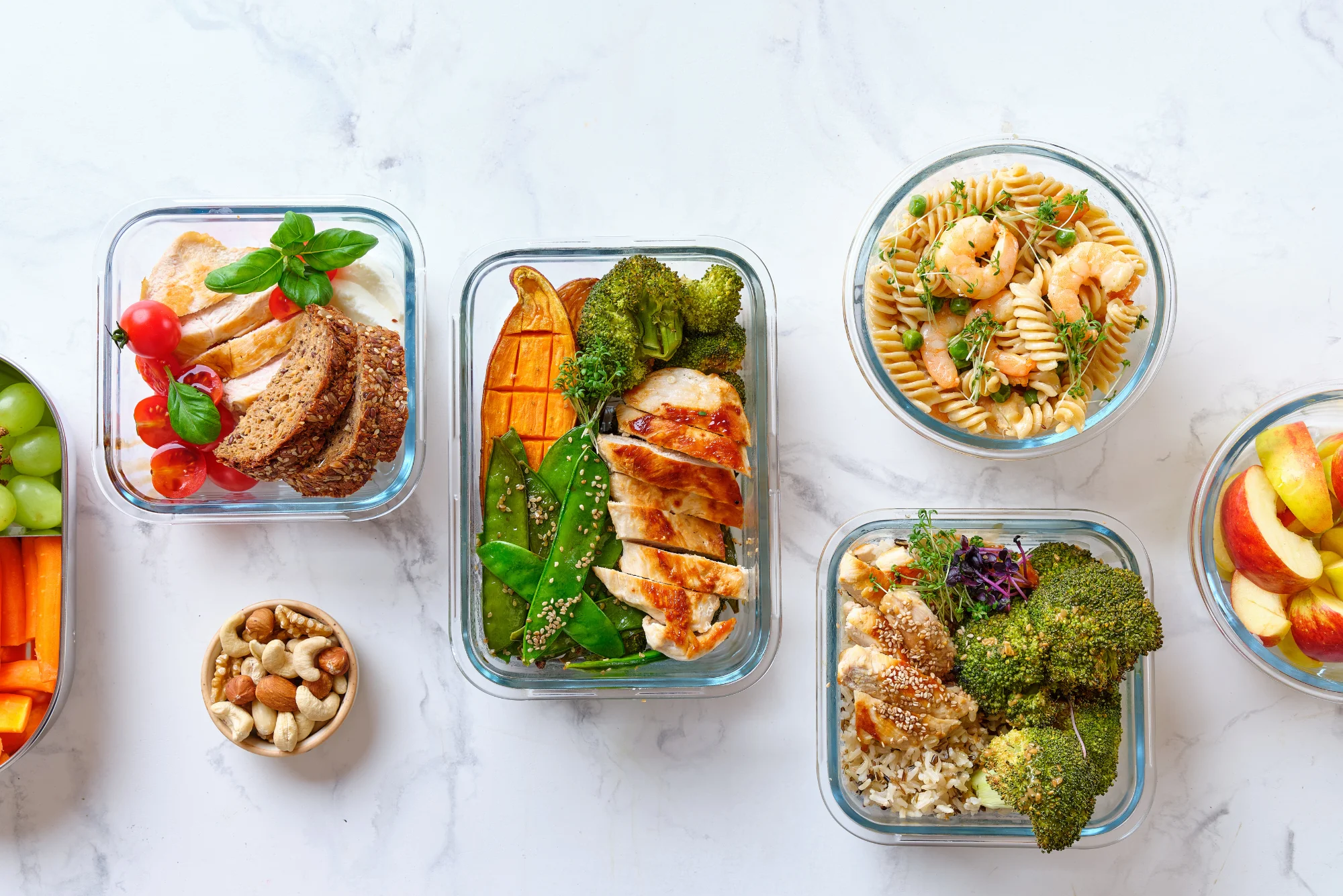
There are dozens of different diets out there, from Atkins to keto, from paleo to celery juice.
Every diet seems to have a claim to fame, a celebrity endorsement, and a reason why it’s THE one to adopt. But, clearly, they don’t all work for everyone, or there wouldn’t be so many options out there.
So how do you know which one is right for you?
Know Your Dieting Goals
Most of the time, the word “diet” is quickly followed by the words “weight loss.” That’s not wrong, but we want to specify that fat loss is what we’re really going for.
People want diets to deliver fat loss. Often, that has to do with appearance and how comfortable a person is in their body. It might also have to do with health and fitness, or just not wanting to go buy a new set of clothes.
Physicians want diets to deliver a little more. It’s great if a diet can lead to fat loss, but what doctors really care about is metabolic correction. If there’s something concerning in your blood work — high blood sugar, high cholesterol, etc. — they’re interested in changes that reduce or reverse those issues.
So if an obese patient comes in and their blood work looks great, they have no signs of prediabetes, and they’re problem-free, then as doctors, we’re not too concerned about their weight.
However, a case like that would be pretty rare. Excess fat typically correlates with health concerns like elevated blood sugar, high blood pressure, inflammation, and high cholesterol. These warning signs of metabolic disease motivate us to recommend dieting and fat loss.
Which Diet Works Best?
Everyone wants to know which diet works best.
This is because — contrary to what some claim — we’re very motivated to lose weight and take care of our health. We’re champs at following instructions and putting in the work. But with so many sets of instructions out there, how do we know what to choose?
Low carb? Low calorie? Weight Watchers?
The truth is, most reputable diets work. They may take different avenues to get there, but they help you lose fat. The rest is just branding.
The key difference among all the diets out there is that each offers a special strategy, a particular logic, a clever hack that people can latch onto to help them meet their goals.
This gives us a specific structure to follow — which is exactly what we need: a clear plan with shopping lists, recipes, and serving sizes.
Once we have a diet’s proprietary hack in hand, we become good little soldiers who follow our orders to a T.
This is precisely why popular diets have such strong followings. Give us a list of what to buy, what to eat, and when to eat it, and we’ll do it if the reward is getting slim and trim.
How Do You Know You Need a Diet?
We each have a different trigger that tells us it’s time to get in shape.
Maybe your clothes are getting tight, or you’re running out of belt notches. Maybe your doctor is concerned about your blood work.
These are all signs we might want to look for a diet that can help us drop some excess fat.
The danger is when we ignore these triggers — when we avoid eye contact with the mirror or hide the scale and instead buy bigger clothes.
It’s easy to ignore the signs until we reach a point where it’s undeniable and perhaps causing more serious issues. Maybe we’re not sure what to do, or we’re not sure we can stick to a diet plan.
The solution is twofold. First, decide what will be your trigger — a certain weight? a pant size? — and pay attention to it.
Then, choose a diet that works for you. You don’t have to start the most restrictive diet available. You don’t have to go with what’s popular at the moment. What’s important is to find a diet you can sustain, and then stick with it.
Sometimes we see members who wanted to get from 250 pounds to 175 pounds. They find a diet that suits them and they do great. But then they reach 200 pounds, and they stop going. They think, “Good enough.” But we want you to get to a healthy body composition, and then follow whatever you need to maintain it.
Don’t settle for just okay. Get to the waistline you’re meant to have.
What Is a Reduction Diet?
Technically, every diet is a reduction diet. They all involve a certain degree of restriction. One restricts carbohydrates, another restricts fats, and another restricts calories. Below are some of the most popular:
- Calorie reduction — follows the “calories in, calories out” philosophy. The idea is to burn more calories than you consume, forcing your body to dip into its fat stores for energy.
- Atkins — one of the first popular low-carb diets, it focuses on the gradual reduction of carbs over time.
- Keto — similar to Atkins, it focuses on low carbs, but moves more quickly. It calls for very low carbs right away, so the body goes into ketosis and starts burning fat.
- Paleo — from the word “paleolithic,” this diet only permits foods that prehistoric man is believed to have eaten. It’s high in meat, nuts, seeds, and produce, and restricts processed foods.
- Intermittent fasting — creates windows of time for your body to burn fat stores and avoid insulin release with a feast/fast schedule. You might fast for 16 hours and then eat during a specified 8-hour period.
Which Diet Should You Choose?
Some people may need medication to support their fat loss goals, perhaps if they have a medical condition that makes it difficult to lose weight. Your physician can advise you if this is the case.
But most people just need a dieting strategy, formula, or hack that resonates with them.
As cliché as it sounds, the best diet for you is the one you can stick with.
Of course, it also has to work. On your side, you should see progress in your fat loss and waistline goals. On your doctor’s side, they should see improvement in any concerning blood work.
What’s most important is to recognize what’s not working and what IS working. If you notice a correlation between eating at a certain restaurant weekly and fat gain, make a change. If you notice having your favorite cookies twice a month is just fine, then don’t beat yourself up about it.
When you need a diet, find what works and maintain some iteration of that. Achieve your goals by figuring out what is sustainable for you.




